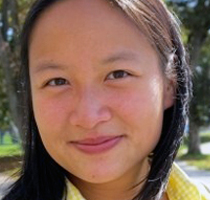Fiction review
Jackie Wong
Lives Whole and Otherwise
by H. Nigel Thomas
Toronto: TSAR Publications, 2010
147 pp. $20.95
Here is an essential short story collection that reveals aspects of Canadian life rarely explored in literature. Lives: Whole and Otherwise chronicles the experiences of Caribbean immigrants in Montreal, a world author H. Nigel Thomas knows well.
Thomas himself emigrated from the Caribbean island of St. Vincent at age 21 to start a new life in Montreal. Like the characters in Lives, Thomas had many reasons to leave. Throughout his life, he witnessed the extreme physical violence routinely exacted upon children in his hometown’s schools, homes, and courts of law. He was fed up with the insular, often damaging traditions of small-town island life, and he wanted badly to educate himself in a place that was welcoming to people who are gay.
It seems fitting that Thomas’ eighth book and second short-story collection is dedicated to a friend named Jimmy Cross. Thomas says Jimmy saved his life. He also dedicates the book to Jimmy’s brother John, who lost his own life for being gay. Small as it may seem, the dedication sets the tone for the rest of the book, which deals with the everyday abuses, despair and small triumphs that would resonate with immigrant life anywhere. But it is the specificity in Thomas’ writing that makes Lives resonate.
The stories unfold in the cramped apartments, home kitchens, and tangled streets of Montreal, where Thomas sheds light on Black life seldom discussed in other writings on the city. The collection opens with “Graduations,” a story set in a hot, crowded high school gymnasium where two Jamaican women wear their Sunday best to watch one of their sons graduate. The mother, Greta, cannot believe her luck. But the celebration is underscored by the limiting realities of her son Dalton’s new life in Canada.
“These boys have not won the chemistry prize, the literature prize, or the French prize,” the high school principal says as Dalton approaches the stage with his technical-vocation classmates. “They will pump your gas, sand your furniture and so on. What will society be without them?”
Something in the principal’s tone makes Greta uncomfortable. Small, indescribable indignities such as these are part of her and her son’s daily life in Canada. Later, amidst the celebratory hubbub after the ceremony, Greta discovers her son can’t read his own graduation certificate. “Them that work with me in the factory how proud I is o’Dalton ‘cause he reach plenty further than me,” Greta cries. “Lord what sort o’cross this? Is what sort o’country this we live in? Why everywhere you turn people lie so?”
The people who populate Thomas’ stories have been sold lies of a better life in Canada. Despite the promise of money and freedom in Montreal, Thomas’ characters toil in thankless jobs cleaning people’s homes, working in factories, and selling their bodies for sex. The abuse and subtle racisms they face in working life drives them to exact emotional and physical violence on what small worlds they control at home.
Despite the cruel realities of immigrant life in Canada, the project of surviving here despite the circumstances is often considered a pursuit of the highest order. Even the prospect of becoming a landed immigrant here seems so important that it drives one man to violence in “Another Trip.” Like many stories in this collection, “Another Trip” is told from the perspective of a woman, Margaret, a 39-year-old former social worker in Montreal who sent a plane ticket to a 26-year-old lover she met on a visit home to see her parents in Kingston, Jamaica. The two married in Canada, which gave him a work permit. But he wants more permanent, landed-immigrant status. Like other men in Thomas’ collection, the man quickly becomes violent in their frequent quarrels, choking her on the bed, threatening to “kick the fucking guts” out of her if she takes action against her. After a neighbour phones the police during a particularly explosive fight in which he slams her head against the wall, she does, with difficulty and guilt.
Domestic abuse is rampant in Thomas’ collection, which often reads as a sharp critique of misogynist traditions that leave women with few places to turn but to the solace of friends who have suffered similarly. Thomas’ own experiences as a mental health worker, a secondary school teacher, and a university professor are clear influences in his work.
This well-crafted, clear-eyed collection is often ruthless in its criticism of the untold cruelties of Canadian life that take place behind closed doors. Thomas’ condemnation of the Canadian immigration system and the cold, look-but-don’t-touch aspects of our culture that allows violence to persist sometimes reads more like a polemic essay than a work of fiction. But aside from that criticism, it’s a lyrical collection of stories that need to be told. Canadian literature is the better for it.






No Comments so far ↓
There are no comments yet...Kick things off by filling out the form below.